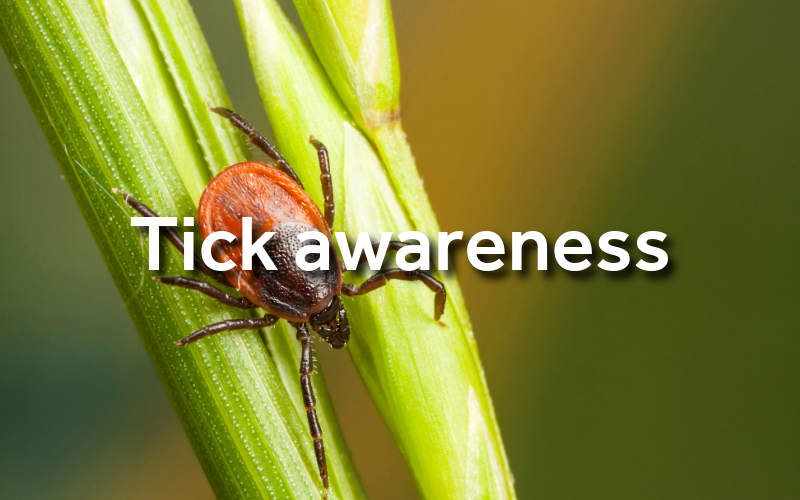
Staying protected on site: Tick awareness
March is the beginning of the active season for ticks, and the increase in tick numbers and activity means landscapers and those involved in site-based environmental activities are more likely to come across them than previous years.
For Association members who work in grassy or wooded areas throughout England, Wales and Scotland, it is difficult to avoid the habitats where ticks live, meaning awareness of the risks posed by tricks and how to avoid getting bitten is important.
Tick bites are a relatively common occurrence that result in nothing more than a small, itchy spot. In rare cases however, ticks can pass on Lyme disease or viruses such as encephalitis. Both have the potential to cause serious illness amongst humans and awareness of the symptoms is important to ensure they are treated promptly.
Encephalitis is a viral infection that can cause a meningitis-like illness in humans and recently been found in areas of the UK including Thetford Forest, Hampshire and Dorset border, the New Forest, the North Yorkshire Moors and the Scottish Highlands.
Be prepared for contact with ticks by recognising the risks associated with:
- geographic location (in particular, Scotland, Hampshire, Dorset and East Anglia)
- terrain (woodlands, healthland and moorland)
- Conditions (long, dense, damp foliage such as bracken and grass)
Protect yourself from ticks by wearing suitable clothing:
- Wear trousers and tuck them into your socks, or wear gaiters
- Apply spray-on insect repellent
After work, check for ticks:
- In and around hair and ears
- Under arms
- Around waist and back
- Between legs and back of knees
- Between feet and toes
-
Inside belly button
If you find a tick:
- Remove the tick as soon as possible. Tick removal tools are available from outdoor shops and chemists.
- Monitor the bite: a small itchy spot is a normal reaction, but if a large red rash develops, or you feel unwell (particularly unusual tiredness, fatigue, pains in joints) tell your doctor you’ve been bitten by a tick.
Further reading
Forestry and Land Scotland: Lyme disease and tick awareness
